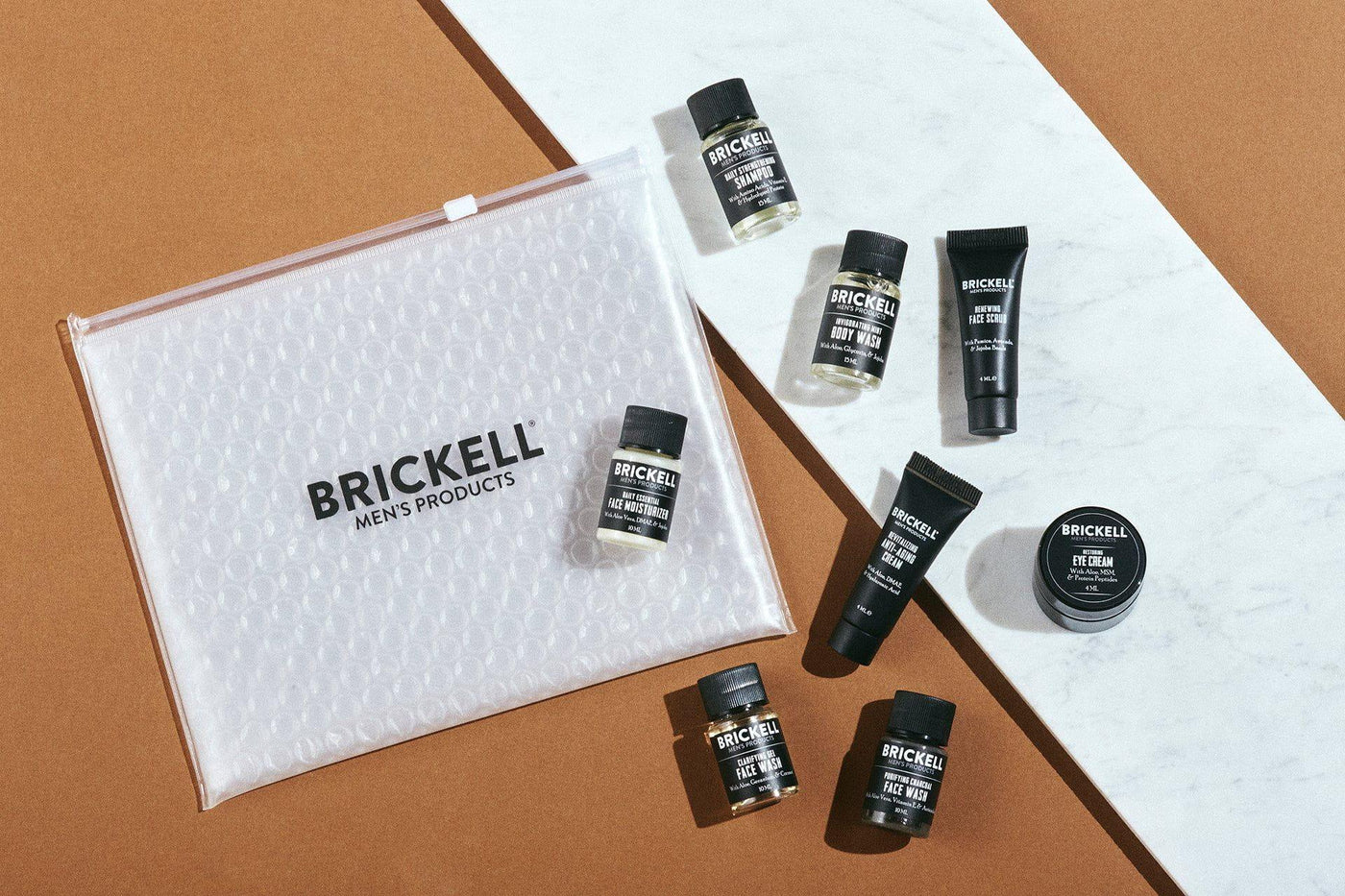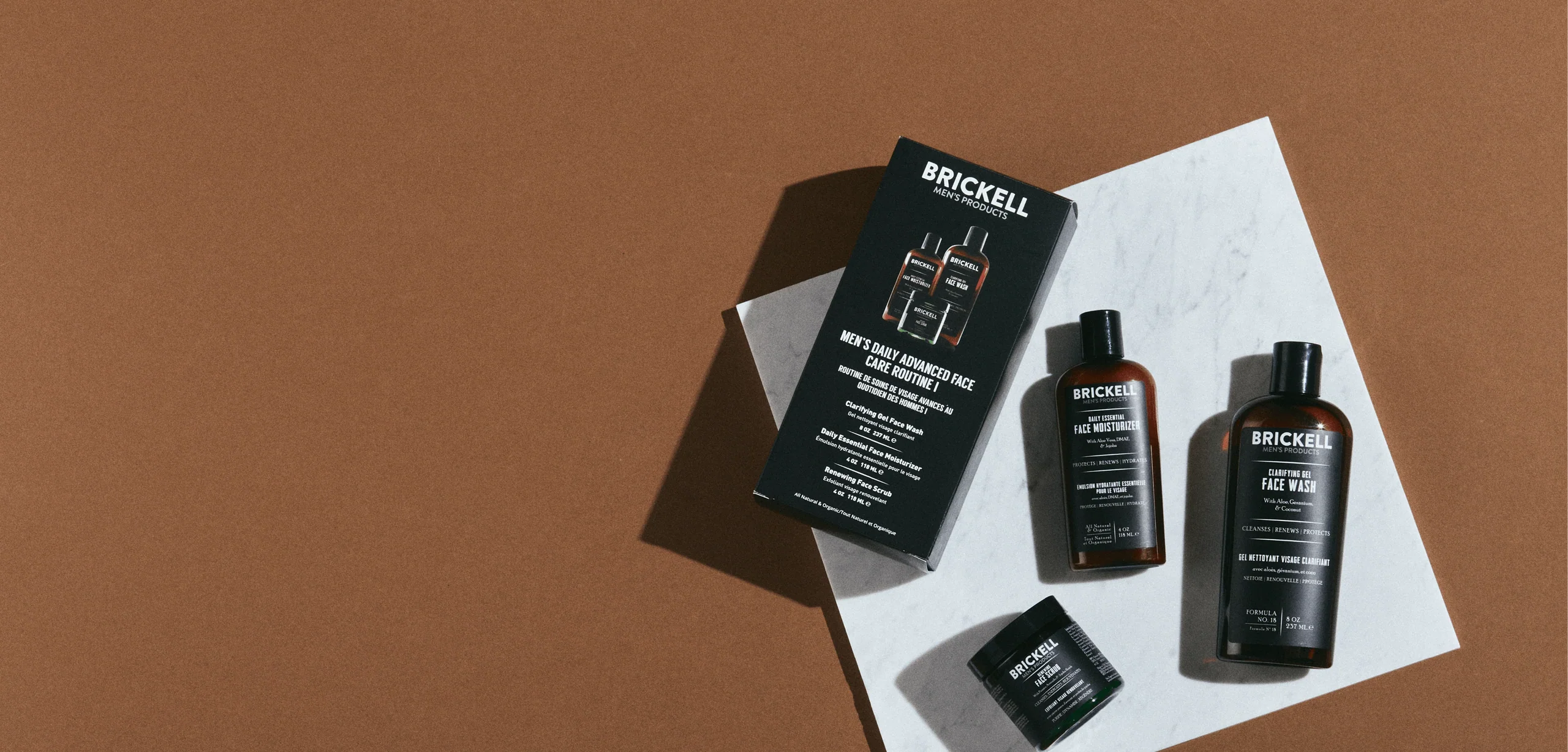The Grooming Manual
What Ingredients to Use or Avoid with Retinol

Retinol is one of the most popular and most powerful anti-aging skincare ingredients for men. It increases collagen production, boosts cellular turnover, helps with oil regulation, neutralizes free radicals, and contributes to unclogging pores. With so many benefits, it's no wonder so many guys use retinol to keep their skin looking great.
Still, there are some factors you need to consider before you start using retinol for anti-aging. As a powerful active ingredient, it can cause skin irritation if not used properly or if used along with other ingredients that together create a problem for your skin.
That's why we've got this helpful guide on which ingredients to use or avoid with retinol. You deserve to get all of the benefits without having to stress about skin irritation. Here's how.
Review Your Current Skincare Routine
To start, take a look at the skincare products you are currently using. What are their main active ingredients? Make a list so that you can properly assess if retinol will fit into your routine.
Some of the products that are most likely to contain potentially problematic pairing with retinol are anti-aging products, exfoliators, and acne treatments.
Why Do You Want to Use Retinol?
If your anti-aging routine is already delivering the results you want, we recommend you stick with it. While retinol is proven effective at reducing wrinkles and improving skin texture, it's not the only ingredient that works. However, if you feel that you need to adjust your anti-aging routine in order to better control wrinkles, fine lines, age spots, and other common signs of aging, retinol may be right for you.
What Ingredients Can You Use with Retinol Safely?
Now that you have your anti-aging goals clearly in mind and have a list of the active ingredients in your current products, you can determine if and how to include retinol in your skincare routine. These are some of the most common skincare ingredients and how they interact with retinol.
Can You Use Hyaluronic Acid with Retinol?
Yes, you can use hyaluronic acid with retinol. Hyaluronic acid is a moisturizing humectant. Each molecule holds a tremendous amount of water, thus contributing to keeping your skin smooth and hydrated. It is safe to use along with most other skincare ingredients. In fact, it's one of the key ingredients in our Retinol Face Moisturizer Cream - along with retinol and aloe.
Can You Use Niacinamide with Retinol?
Yes, you can use niacinamide with retinol. They are complimentary ingredients that work together for optimal anti-aging results. That's because niacinamide - also known as vitamin B3 - helps calm and soothe the skin. This is exactly what you want when using retinol since it can be a potential irritant. Niacinamide also contributes to strengthening the skin's natural barrier, which is another way to decrease irritation.
Can You Use Benzoyl Peroxide with Retinol?
Possibly, but be cautious. Benzoyl peroxide is an oxidizing agent. It's often used to treat acne since it eliminates bacteria, reduces inflammation, controls oil, and exfoliates the skin. Retinol, on the other hand, is an antioxidant. That means that, when used together at the same time, these two products can essentially cancel each other out. You'll end up getting reduced results from both.
In some cases, using benzoyl peroxide in the morning and retinol in the evening can work. If you want to use both benzoyl peroxide and retinol products, speak with your dermatologist first to make sure you'll be able to achieve your desired results. Doing a patch test before using the products together will help you assess any potential for irritation.
Can You Use Glycolic Acid with Retinol?
We don't recommend using glycolic acid with retinol. Glycolic acid is an AHA (alpha hydroxy acid) that exfoliates your skin, removes dead skin cells and clears your pores. That process - while great for smoothing and brightening your skin - can make your skin sensitive. Retinol also has that potential, so using them together nearly ensures that your skin will become irritated.
When using either glycolic acid or retinol, always follow up with a moisturizer. Our Daily Essential Face Moisturizer deliver maximum hydration while also strengthening your skin's natural barrier. It's combination of aloe, jojoba, and DMAE makes it an ideal follow up to AHA's or retinol.
Can You Use Lactic Acid with Retinol?
Using lactic acid with retinol is not recommended. Like glycolic acid, it is an exfoliating AHA and can lead to significant skin irritation and sensitization if used with retinol.
Can You Use Salicylic Acid with Retinol?
No, we don't generally recommending using salicylic acid and retinol together. Salicylic acid is a BHA (beta hydroxy acid) that's often used to fight acne. It's a chemical exfoliant that helps unclog pores and control oil. It also tends to dry out the skin. Together, retinol and salicylic often lead to irritation and discomfort.
Can You Use Vitamin C with Retinol?
We do not recommend using vitamin C and retinol together. However, they can be used safely at different times of the day or on separate days, depending on your skin type and skincare goals.
Vitamin C is best used in the morning. It fights long term UV damage and the age spots and discoloration that it forms. Retinol, on the other hand, works best overnight to boost collagen and support skin repair.
Build an Anti-Aging Routine that Works for You
There are many options when it comes to anti-aging skincare products for men. While retinol for men is a popular ingredient, it's far from your only effective option. Whichever products and ingredients you choose to use, make sure you're applying them in a complimentary way and avoiding the potential for sensitization and irritation.

